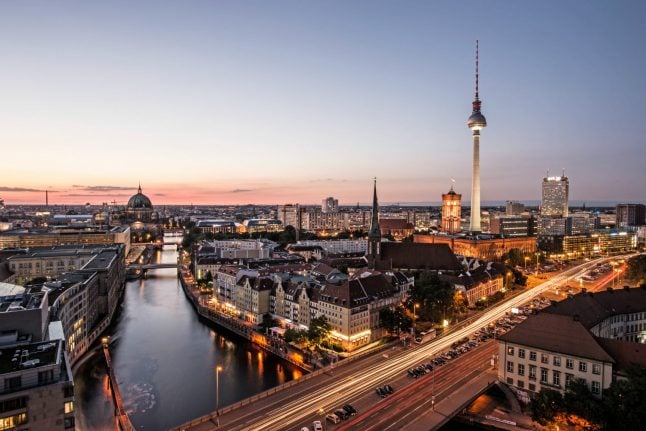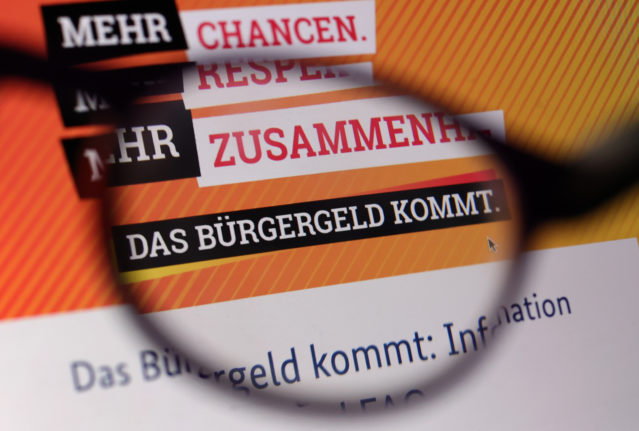Tübingen works well, according to Palmer. Since Tuesday, a chocolate festival with mouthwatering sweets has been attracting visitors to the old town of the Swabian city that's near Stuttgart.
The Baden-Württemberg destination is also popular with students, and is considered a pioneer in climate protection. Meanwhile, buses are free to passengers on Saturdays.
SEE ALSO: 8 events not to miss in Germany this December
These are positive things that Berlin just can't keep up with this, according to Palmer of the centre-left Green party. “When I arrive there (Berlin), I always think: 'Beware, you're leaving the functioning part of Germany',” he told the Funke media group newspapers on Tuesday.
In the capital nothing works properly at all, Palmer says. “I simply can't get along in this mixture of crime, drug trafficking and bitter poverty on the street as an old-fashioned Baden-Württemberg Greens member,” he said. “I don't want these conditions in Tübingen.”
His words created a bit of stir in Germany, with many people taking to social media to have their say.
 Tübingen mayor Boris Palmer is not a fan of Berlin. Photo: DPA
Tübingen mayor Boris Palmer is not a fan of Berlin. Photo: DPA
Berlin-bashing in vogue
Around 3.7 million people live in in Berlin, while Tübingen has about 89,000 residents.
It's safe to say that most people who arrive in Berlin – including Swabians – come voluntarily. Their reasons for living in the capital include the vast cultural landscape, the club scene or perhaps the selection of jobs, including English language positions.
At the same time, so-called 'Berlin-Bashing', in which Palmer is taking part in, is in vogue. Perhaps the bashers have a point. In many places across Germany, people look to Berlin with a mixture of admiration and disapproval. Berlin is the city that they co-finance with their tax money via the state financial equalization system, which mean that richer states contribute to less well-off states.
It can take weeks to get an appointment at the citizens' office to apply for a new identity card. The same is true for the registry office.
Affordable flats are scarce, as are day-care places and teachers. After decades of cost-cutting, many schools have become dilapidated. Criminal gangs are in operation and organized crime takes place, while drug dealers sell their goods largely unchallenged in areas across the city.
Homeless people are often seen on the streets or in U-Bahn stations. In Neukölln, old sofas or mattresses are disposed of on the sidewalk.
Commuters and tourists alike squeeze into overcrowded trains, which often have fewer wagons.
These are all topics that the government in Berlin is dealing with. Some time ago, the “FAZ” newspaper found that politics in the capital could not cope with the grievances.
There, a systematic “lack of competence” prevailed, the newspaper said. “Spiegel Online” columnist Jan Fleischhauer went so far as to say that Berlin is the “Venezuela of Germany”, indicating that Berlin can be chaotic.
Unfair claims?
Now to claim that Berlin doesn't work at all would be unfair. Somehow things in the capital always end up going right somehow. Apart from, perhaps, the still unfinished BER airport; a source of annoyance for many Berliners.
SEE ALSO: Costs of finishing Berlin's disaster airport swell to over €8 million
The Senate has recognized many problems and has initiated many things, from a school renovation programme worth billions of euros to a mobility law.
There’s also been an increase in the number of administrative and police staff and more housing construction. In the coming years, many more things are to be improved, according to the City Hall.
In recent times, there has been friction between people from Berlin and those from Swabia. As far back as 2012, SPD politician Wolfgang Thierse complained that his neighbourhood baker was offering Wecken (the Swabian dialect word for rolls) instead of Schrippen, which rolls in Berlin are called. “I hope that the Swabians will understand that they are now in Berlin and no longer in their small town,” he grumbled.
Berlin's governing mayor Michael Müller (SPD) also intervened in the current debate. He said that in a city of almost 4 million people, there are “particular problems, demands and dynamics”. That’s not the case in the “village-life structure” that Palmer is used to, he said.
However, Palmer, who likes to provoke, was not impressed. “Berlin is a failing state,” he said. “Anyone who wants to live there should do so. I don't want to and stand by it.”




 Please whitelist us to continue reading.
Please whitelist us to continue reading.
Member comments